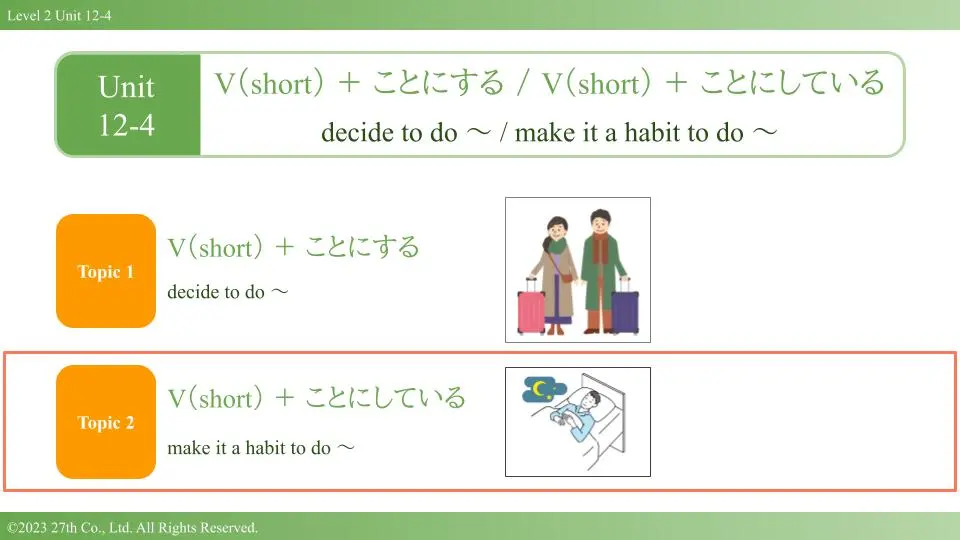
V (short) + ことにしている: How to Say “Make it a Habit to …”
Introduction Do you know how to express ‘‘do as a regular practice’’? Use V (short) + ことにしている to say you make something a habit/rule for yourself.... Read more.
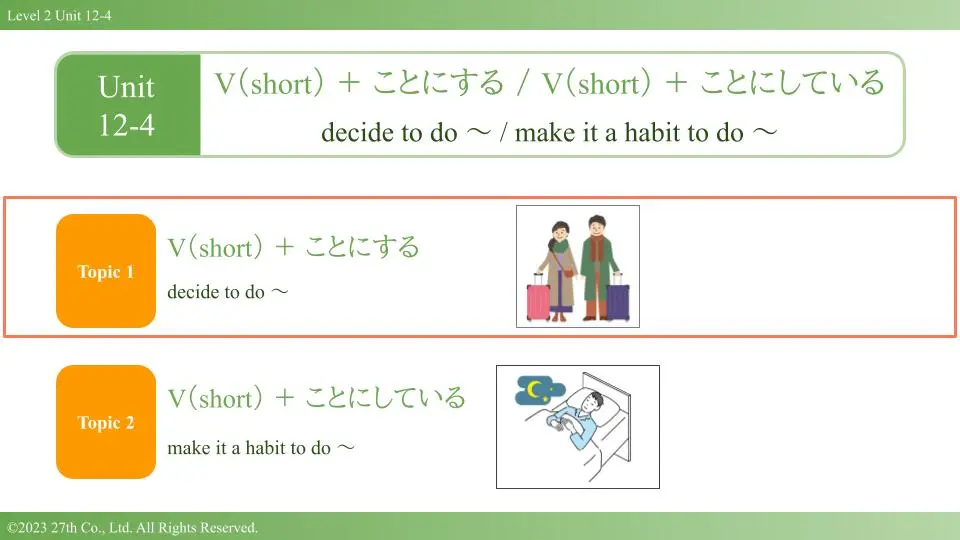
V (short) + ことにする: How to Say “Decide to do …” in Japanese
Introduction Do you know how to say ‘‘decide to do something’’? For example: Use V (short) + ことにする to say you decide to do something. It expresses... Read more.
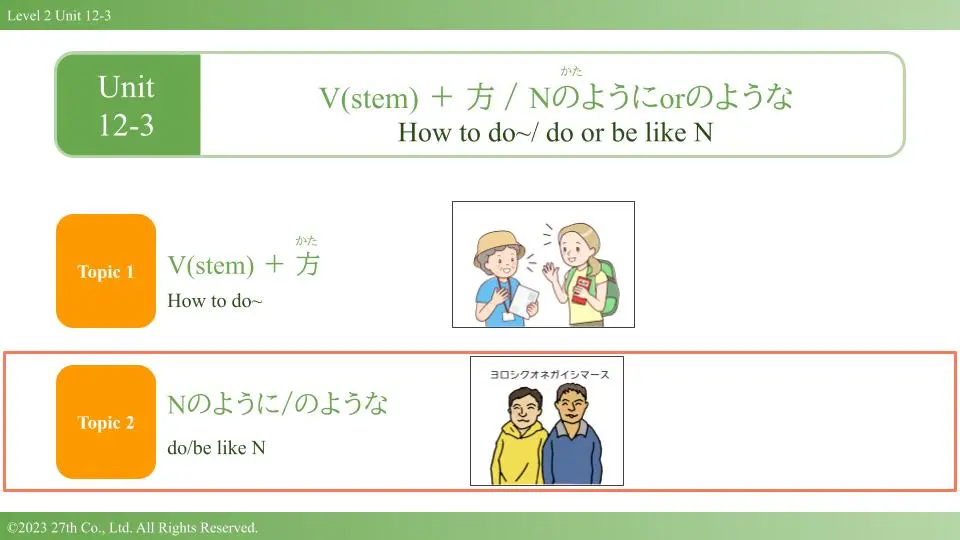
N のように / N のような: How to Say “Like N / Similar to N” in Japanese
Introduction Do you know how to express similarity or likeness? Use N のように and N のような to say something is like N or similar to N. 1. Meaning &... Read more.
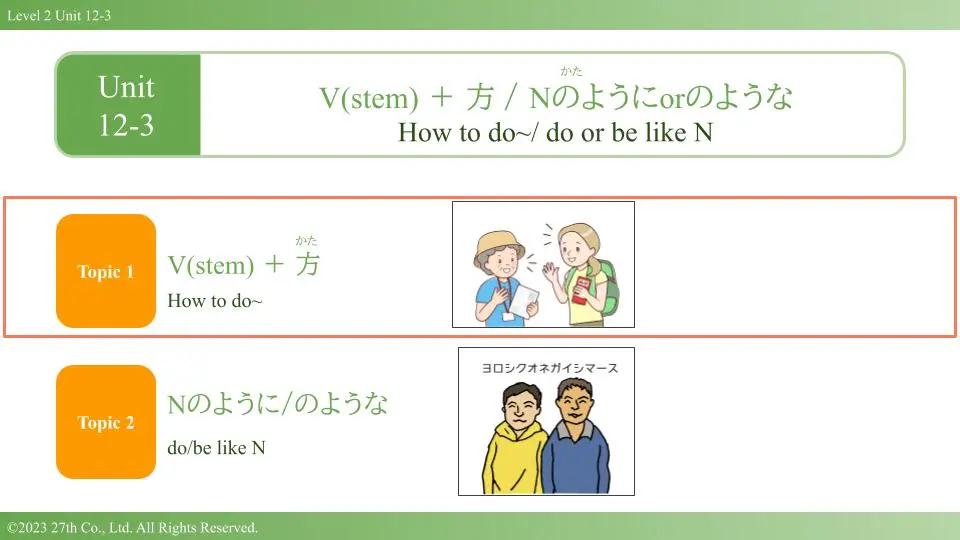
V-stem + 方 (kata): How to Say “How to do ~” in Japanese
Introduction Do you know how to express the idea of “how to do” something or the “way of doing” something in Japanese? V-stem + 方 (kata)... Read more.

V/adj-て + も: How to Say “Even If …” in Japanese
Introduction Do you know how to express the idea of “even if” or “regardless of”? For example, “Even if it’s hot, I will go out” or... Read more.
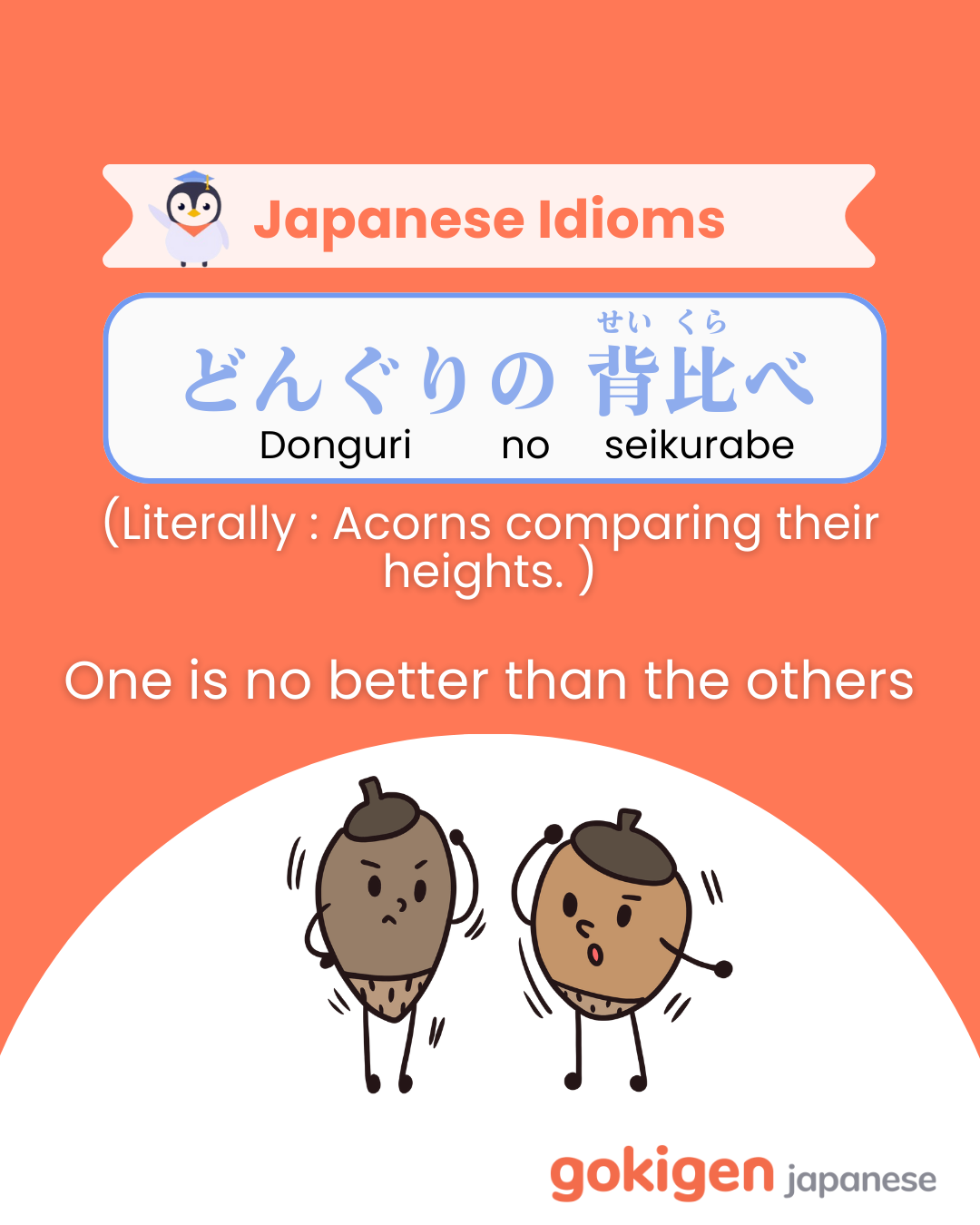
[Japanese idioms] どんぐりの背比べ (donguri no seikurabe) – One is no better than the others
Meaning The phrase “どんぐりの背比せいくらべ” (Acorns comparing their heights.) refers to a situation where individuals or things are compared,... Read more.
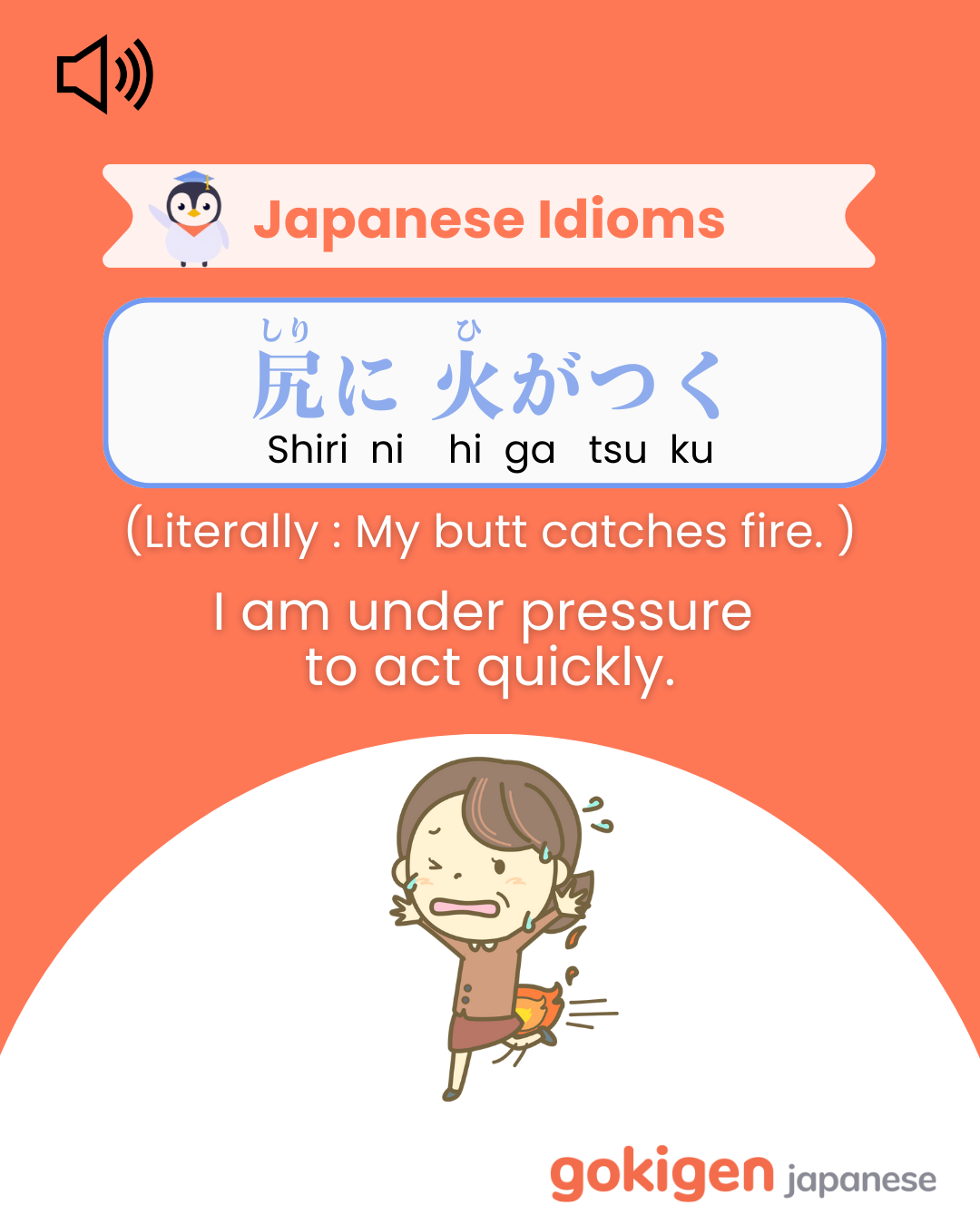
[Japanese idioms] 尻に火がつく (shiri ni hi ga tsuku) – I am under pressure to act quickly
Meaning The phrase “尻しりに火ひがつく” (My butt catches fire. ) means to be in a critical or urgent situation where immediate action is required,... Read more.
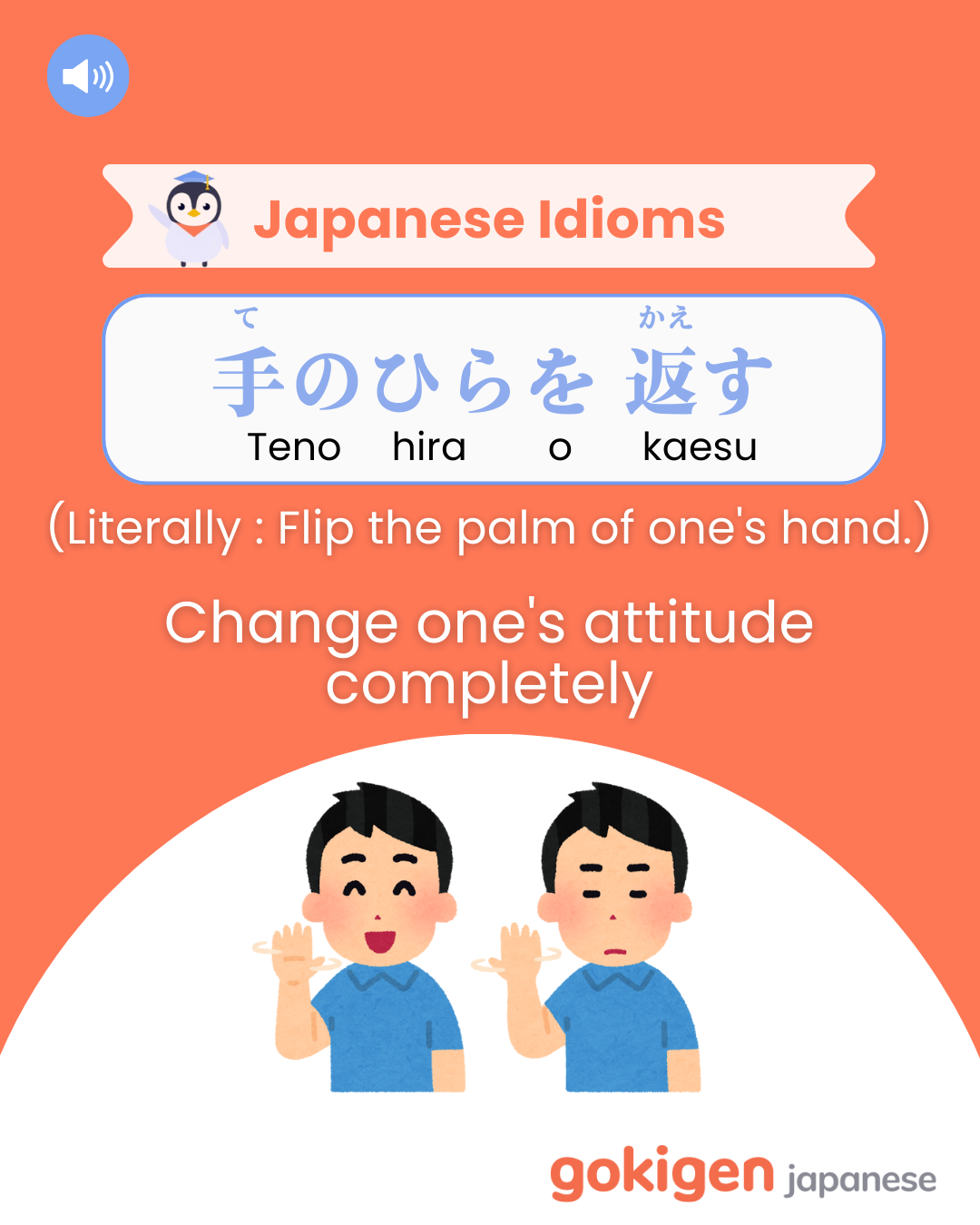
[Japanese idioms] 手のひらを返す (tenohira o kaesu) – Change one’s attitude completely
Meaning The phrase “手てのひらを返かえす” (Flip the palm of one’s hand. ) means to abruptly change one’s attitude or opinion, often... Read more.
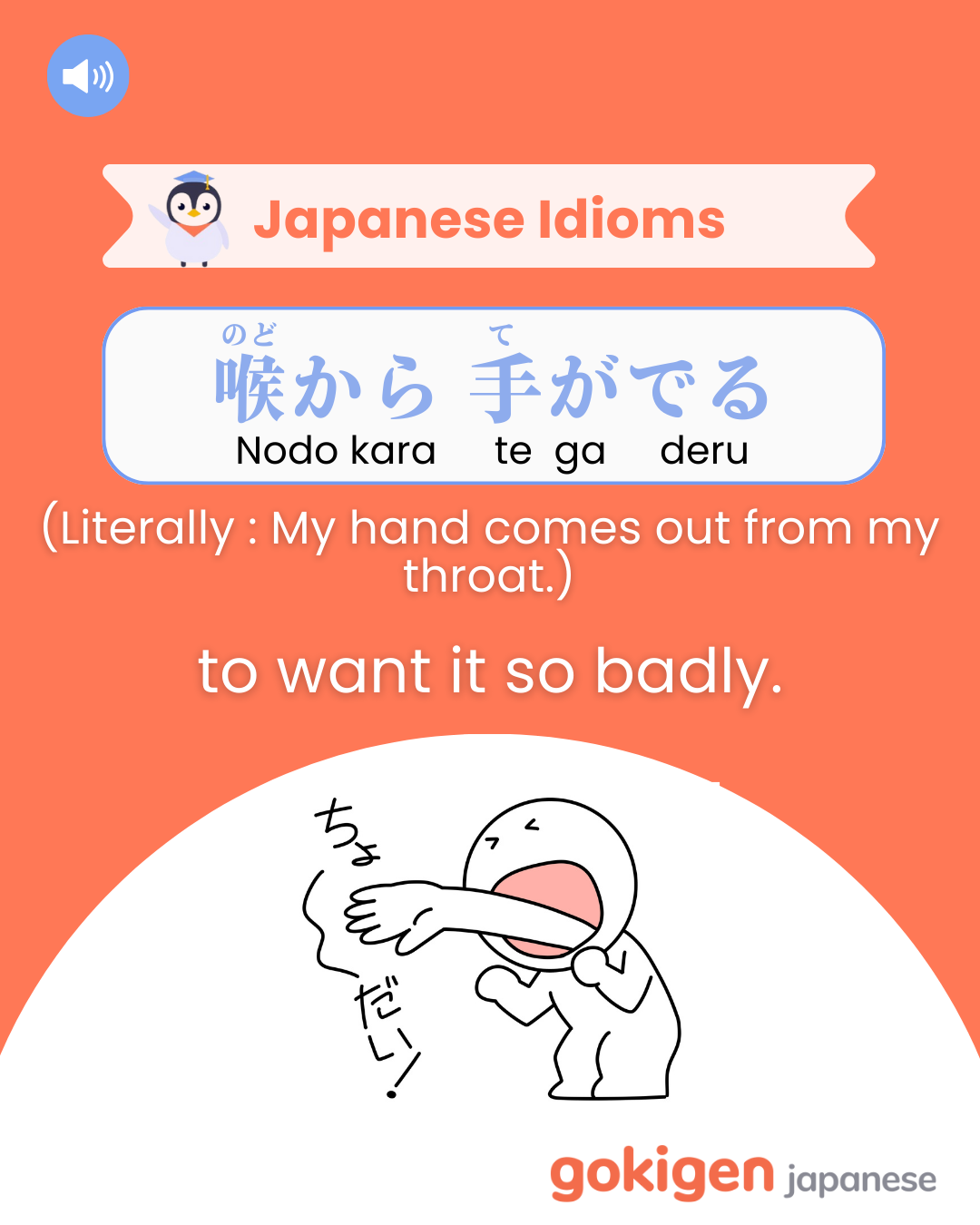
[Japanese idioms] 喉から手が出る (nodo kara te ga deru) – to want it so badly
Meaning The phrase “喉のどから手てがでる” (My hand comes out from my throat.) expresses an intense desire or longing for something, as if your... Read more.
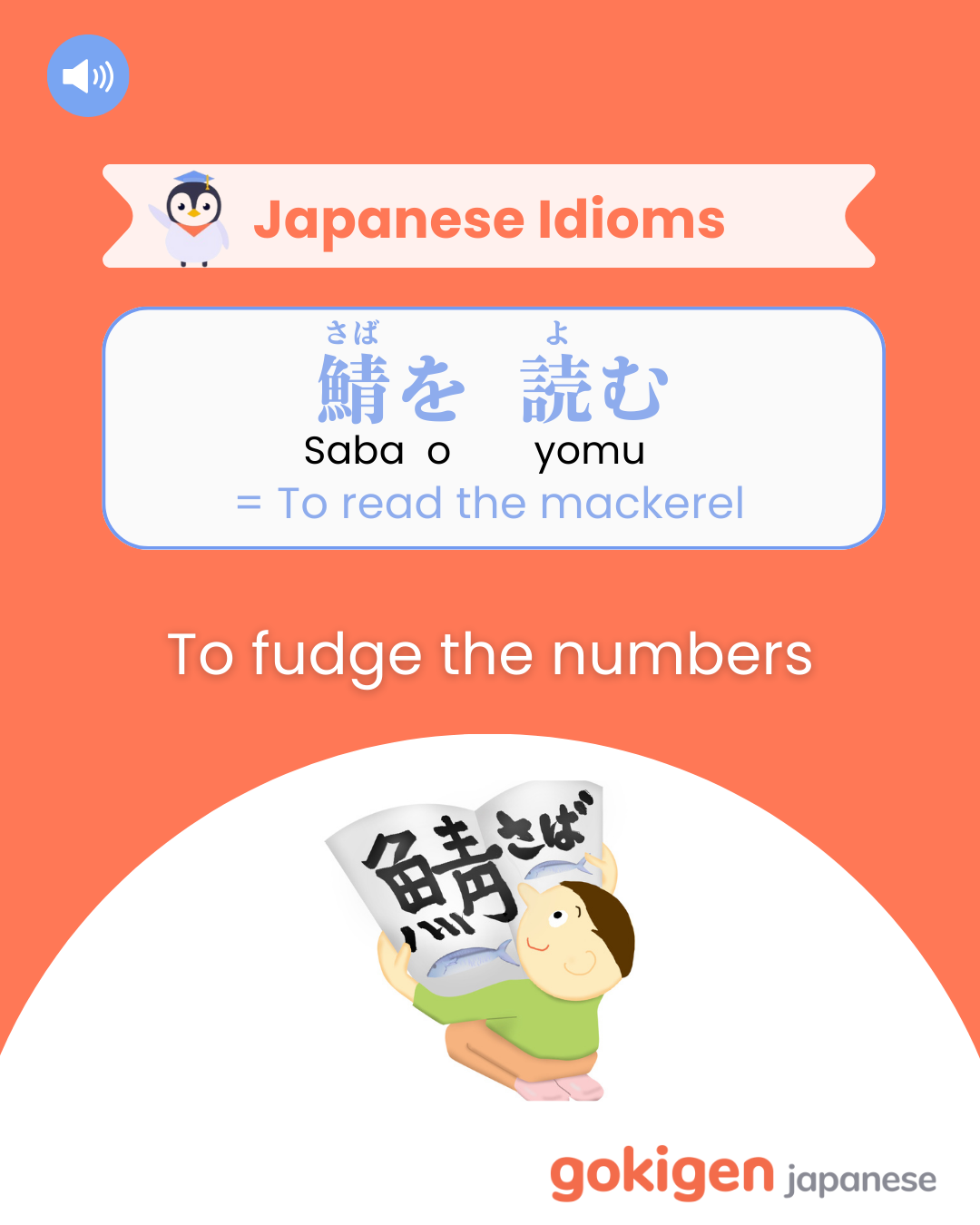
[Japanese idioms] 鯖を読む (saba o yomu) – To fudge the numbers
Meaning The phrase “鯖さばを読よむ” (To read the mackerel.) means to manipulate numbers, like age or price, to one’s advantage, often to... Read more.
